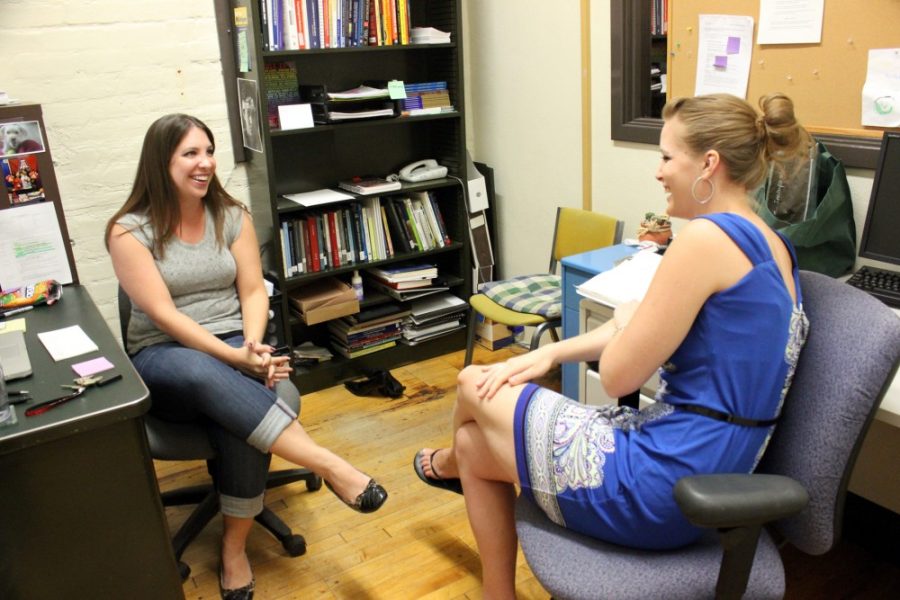While a national survey shows there is little benefit to unpaid internships, some UA students say internships are valuable regardless of whether they’re paid or not.
A 2013 survey conducted by the National Association of Colleges and Employers showed little percentage difference between students with unpaid internships and those with no internships when it came to getting a job after college.
The survey, found on the NACE website, showed that 63.1 percent of students with paid internships received at least one job offer, while only 37 percent of students who had an unpaid internship and 35.2 percent who had no internship experience were offered a job after graduation.
The survey included responses from 9,215 seniors who were earning a bachelor’s degree, and has been conducted for three consecutive years, according to the association’s website.
A lot of students want paid internships, said Stephanie Smith, internship coordinator for the communication department, but there are some reasons students may prefer an unpaid internship.
In the communications department, for example, students can’t get school credit if the internships are paid, Smith added.
But there are also factors that drive students away from unpaid internships. If the department requires a student to pay summer tuition to receive credit for a summer internship, it adds on to the burden of not making money from the internship.
However, Smith said unpaid internships are valuable because they help students find out if they want to be in a specific industry or have a certain position. Unpaid internships are lawful if the student is receiving class credit, she added.
Eileen McGarry, director of UA Career Services, said the debate on whether students should get paid for internships is not always black and white, since many factors go into the decision.
“A quality internship is still going to put students above and beyond,” McGarry said, adding that employers are looking for career-related experience, which ranks those students higher than students without internship experience.
Despite the survey results, McGarry said, it’s a matter of presentation and gaining experience from the internship that helps students secure jobs.
The benefit of paid internships for the company is being able to recruit people who they eventually wish to add to their list of full-time employees, McGarry added. However, if the company is not paying, they may not have the capacity to hire people at that moment, she added.
“There may be possibilities that the position opens at the end of that internship,” McGarry said, “but it’s not a pre-planned strategy like the companies that are hiring interns.”
Unpaid internships are likely to be highly competitive as well, McGarry added.
Students who have had internships said experience is key, regardless of whether it’s a paid or unpaid internship.
Meagan McBride, a biology freshman who had an unpaid internship at the Northside Child Health Center in Colorado, said while it would make sense for them to be paid because it’s more like a job than an internship, there’s still something to gain from unpaid internships.
“I feel like even if you don’t get paid at the internship, you still get the same experience as you would if you got paid,” McBride said.
Christian Del Rosario, a physics freshman, had paid internships at Pima Community College and the United Way of Tucson and Southern Arizona. He said he believes the survey results make sense.
“I did actually have to stay focused and have to do everything I could to keep that job,” Del Rosario said.
It’s easier for those with paid internships because they already have the experience, he added, and being paid for an internship gives students an incentive to put in more effort.
“Otherwise it would be just like basic community service,” he said.
Riley Duke, an anthropology sophomore, said internships are beneficial for networking as well.
“[Students are] able to get contacts and potentially that could lead to a job where they do get paid,” Duke said. “It’s a bummer that they don’t get paid, but they’re getting something out of it. It’s not just for money.”
– Follow Maggie Driver @Maggie_Driver









